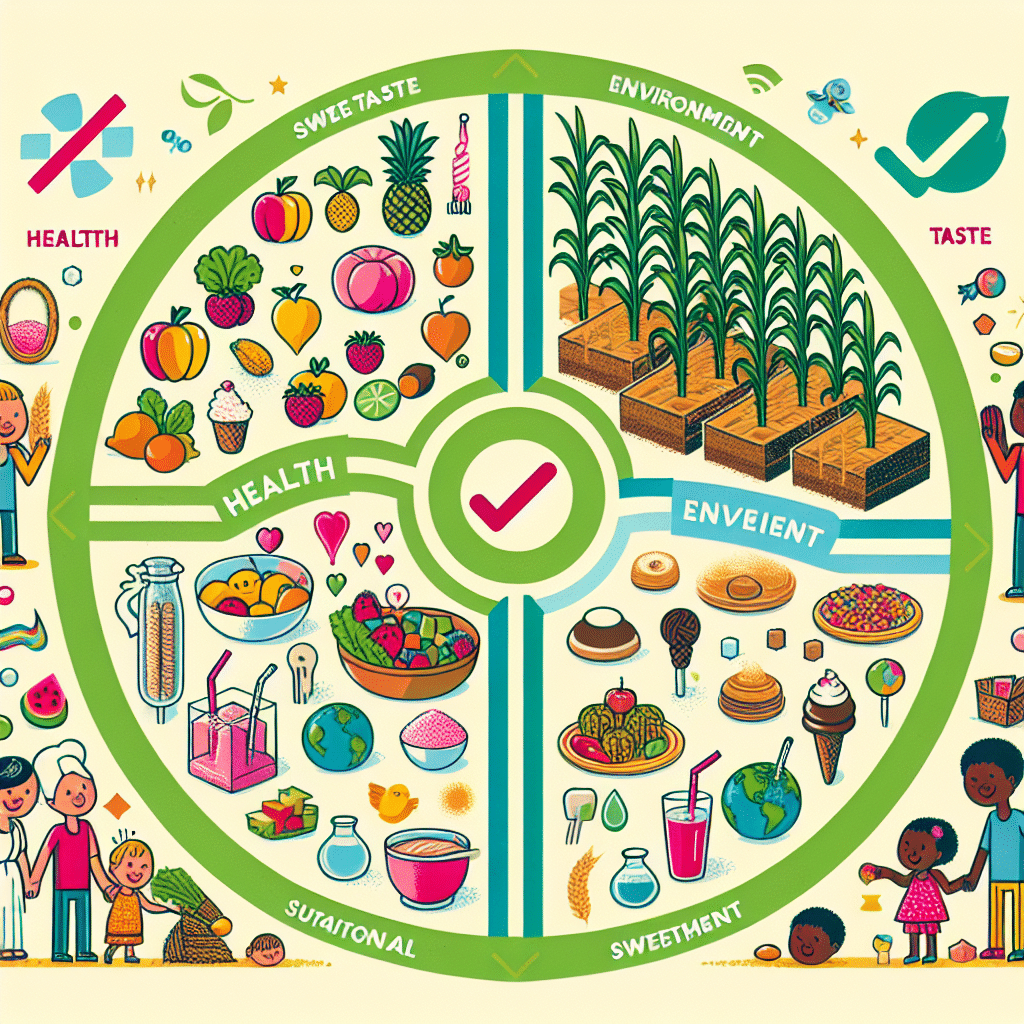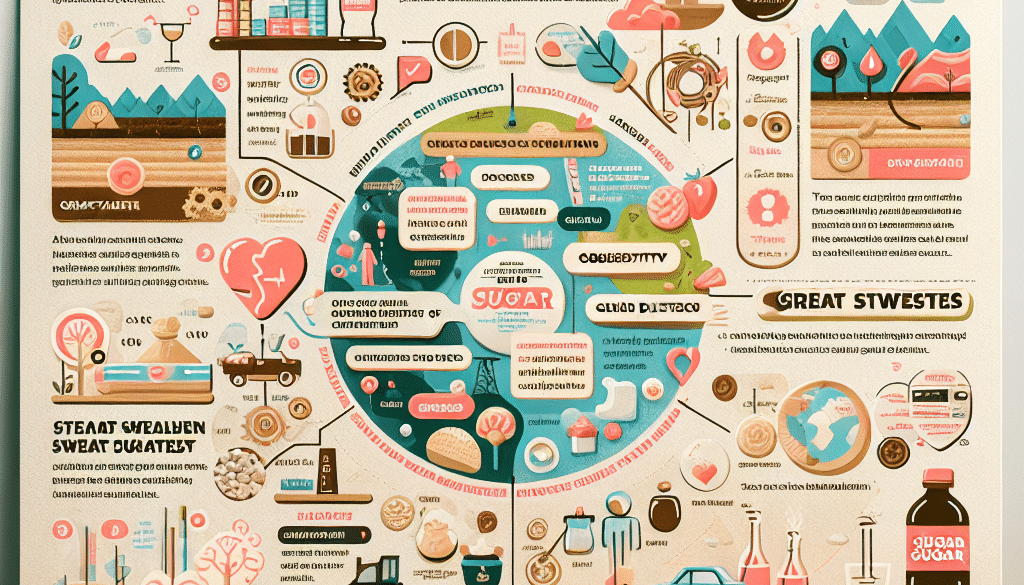Sugar Reduction: Sweetness’ Role in Health, the Environment, and Taste
-
Table of Contents
- Sugar Reduction: Exploring Sweetness in Health, Environment, and Taste
- The Health Implications of Sugar
- Environmental Impact of Sugar Production
- The Taste Challenge: Balancing Flavor and Health
- Case Studies and Statistics: The Sugar Reduction Movement
- Conclusion: The Sweet Spot of Sugar Reduction
- ETprotein: A Sweet Alternative for Health-Conscious Consumers
Sugar Reduction: Exploring Sweetness in Health, Environment, and Taste

The global conversation around sugar consumption has intensified in recent years, with a growing body of research highlighting the need for sugar reduction in our diets. This article delves into the multifaceted role of sweetness in health, environmental sustainability, and the culinary arts, offering insights into how reducing sugar intake can benefit individuals and the planet alike.
The Health Implications of Sugar
Excessive sugar consumption is linked to a plethora of health issues. The World Health Organization recommends that added sugars should make up less than 10% of total energy intake, with further benefits observed when reducing to below 5%. Here are some of the health concerns associated with high sugar diets:
- Obesity: Sugary foods and beverages contribute to an increased calorie intake without providing satiety, leading to weight gain.
- Diabetes: High sugar intake is associated with the development of type 2 diabetes due to the strain it places on the body’s insulin response.
- Heart Disease: Studies have shown a correlation between high sugar consumption and cardiovascular disease risk.
- Dental Health: Sugar is a primary cause of dental caries and tooth decay.
Reducing sugar intake can lead to improved health outcomes, including weight loss, stabilized blood sugar levels, and reduced risk of chronic diseases.
Environmental Impact of Sugar Production
The sugar industry has significant environmental implications. The cultivation of sugar crops, such as sugarcane and sugar beet, requires extensive land use, water resources, and often involves the use of harmful pesticides and fertilizers. Deforestation for sugar plantations contributes to habitat loss and biodiversity decline. Moreover, the processing of sugar generates waste and pollution, impacting local ecosystems.
By reducing sugar consumption, we can lessen the demand for sugar production, thereby mitigating its environmental footprint. This shift can promote more sustainable agricultural practices and contribute to the conservation of natural resources.
The Taste Challenge: Balancing Flavor and Health
While health and environmental concerns push for sugar reduction, taste remains a paramount factor in consumer choices. The food industry faces the challenge of creating products that are both healthy and palatable. Innovations in this area include:
- Natural Sweeteners: Alternatives like stevia, monk fruit, and allulose offer sweetness without the calories or glycemic impact of sugar.
- Flavor Enhancers: Ingredients that amplify the perception of sweetness, such as certain spices and extracts, can reduce the need for added sugars.
- Reformulation: Companies are reformulating products to gradually reduce sugar content, allowing consumer palates to adapt over time.
These strategies help maintain the sensory appeal of foods and beverages while aligning with health-conscious trends.
Case Studies and Statistics: The Sugar Reduction Movement
Several case studies demonstrate the positive impact of sugar reduction initiatives. For example, the UK’s sugar tax on soft drinks led to a significant reduction in sugar levels in beverages, with many manufacturers reformulating their products. In another instance, a major food company reduced sugar in its breakfast cereals without compromising taste, resulting in a positive consumer response.
Statistics further underscore the movement’s momentum. A survey revealed that nearly 60% of consumers are trying to limit their sugar intake. Market research indicates a growing demand for reduced-sugar and sugar-free products, with the global market for alternative sweeteners projected to expand considerably in the coming years.
Conclusion: The Sweet Spot of Sugar Reduction
Finding the balance between sweetness, health, and environmental sustainability is a complex but necessary endeavor. Reducing sugar intake can lead to significant health benefits, lessen the environmental burden of sugar production, and, with innovative solutions, still satisfy our taste buds. The key takeaways from this exploration are clear: moderation in sugar consumption is essential, alternative sweeteners and flavor enhancers can play a vital role, and consumer education is crucial for making informed dietary choices.
ETprotein: A Sweet Alternative for Health-Conscious Consumers
For those looking to reduce sugar in their diets without compromising on taste or protein intake, ETprotein offers a range of high-quality protein products. Their organic bulk vegan proteins are an excellent addition to any health-focused diet, providing the necessary nutrients without the added sugars found in many conventional protein sources.
ETprotein’s offerings include a variety of plant-based proteins such as rice, pea, and pumpkin seed proteins, which are not only nutritious but also environmentally friendly. These products cater to a diverse range of dietary preferences and are ideal for individuals seeking to maintain a balanced diet while reducing sugar consumption.
Whether you’re formulating new health products or simply looking for a nutritious protein boost, ETprotein’s products are a smart choice for those mindful of sweetness’ role in health, the environment, and taste.
About ETprotein:
ETprotein, a reputable protein and L-(+)-Ergothioneine (EGT) Chinese factory manufacturer and supplier, is renowned for producing, stocking, exporting, and delivering the highest quality organic bulk vegan proteins and L-(+)-Ergothioneine. They include Organic rice protein, clear rice protein, pea protein, clear pea protein, watermelon seed protein, pumpkin seed protein, sunflower seed protein, mung bean protein, peanut protein, and L-(+)-Ergothioneine EGT Pharmaceutical grade, L-(+)-Ergothioneine EGT food grade, L-(+)-Ergothioneine EGT cosmetic grade, L-(+)-Ergothioneine EGT reference grade and L-(+)-Ergothioneine EGT standard. Their offerings, characterized by a neutral taste, non-GMO, allergen-free attributes, with L-(+)-Ergothioneine purity over 98%, 99%, cater to a diverse range of industries. They serve nutraceutical, pharmaceutical, cosmeceutical, veterinary, as well as food and beverage finished product distributors, traders, and manufacturers across Europe, USA, Canada, Australia, Thailand, Japan, Korea, Brazil, and Chile, among others.
ETprotein specialization includes exporting and delivering tailor-made protein powder and finished nutritional supplements. Their extensive product range covers sectors like Food and Beverage, Sports Nutrition, Weight Management, Dietary Supplements, Health and Wellness Products, and Infant Formula, ensuring comprehensive solutions to meet all your protein needs.
As a trusted company by leading global food and beverage brands and Fortune 500 companies, ETprotein reinforces China’s reputation in the global arena. For more information or to sample their products, please contact them and email sales(at)ETprotein.com today.












